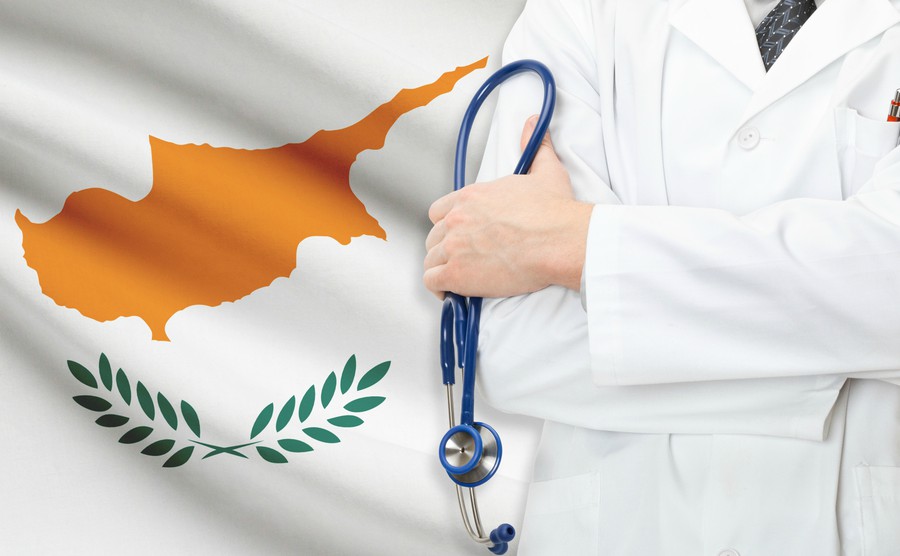Everything an expat needs to know about the healthcare system in Cyprus.
You’re probably drawn to Cyprus because of the enduring sun, white sand beaches, pine-clad mountains and sweeping valleys. If you plan to move there you’ll want to be able to enjoy these alluring features to the full, safe in the knowledge that your health and well-being are in good hands. So, you’ll be pleased to hear that the healthcare system in Cyprus is of a high standard and recognised by the World Health Organisation to be on par with other developed countries.
That said, healthcare on the island has suffered at the hands of austerity measures, with the government spending just 6.8% of GDP on health, compared to 9.9% in the UK (2014 figures) . Thankfully, this deficit is replaced by private healthcare expenditure, resulting in a healthy offering of healthcare in Cyprus for anyone prepared to make more of a contribution.
The healthcare system in Cyprus is of a high standard and recognised by the World Health Organisation to be on par with other developed countries.
Both state-funded and private hospitals can be found in all of Cyprus’s major cities. However, healthcare facilities in the south are generally considered to be better than those in the Turkish-occupied north of the island. The majority of hospitals will have English-speaking staff, but when signing up with a doctor it is always helpful to choose one that you can communicate with effectively.
Find homes in Cyprus via our property portal.
Public healthcare
The public healthcare system in Cyprus is administered by the Ministry of Health and like the good old NHS is financed by taxes.
As an EU citizen – a status Britons will retain for the next couple of years – visiting Cyprus on a short term basis, you are able to use your EHIC for free treatment in state hospitals and clinics. For visits of three months or longer – by which time residency should have been applied for anyway – you will need to acquire a state medical card when registering for social insurance. Permanent residency also guarantees free state treatment.
Unlike the UK, the state system in Cyprus requires you to pay a small fee to visit a GP or specialist, but prescriptions are considerably cheaper at €0.50 – fees for medicines or laboratory test results must be paid in advance, by purchasing health stamps when registering with your doctor. There is also a €10 charge to use Accident and Emergency – this fee is normally paid at the hospital upon arrival. EU and Cypriot pensioners are exempted from this cost. Non beneficiaries (non-medical card holders) can still use the services of public hospitals by paying €15 for a visit to a GP and €30 for a specialist.

You can expect a high standard of healthcare in Cyprus
Private healthcare
Many expats opt to take out a private healthcare policy to access a wider variety of hospitals and facilities. This option also enables them to skip the public sector’s occasionally long waiting lists. A number of private schemes are available to expats in Cyprus, each tailored individually based on certain criteria.
There are two main private health insurance options available to expats in Cyprus: international private medical cover and the cheaper premiums provided by a local private medical insurance company.
There are two main private health insurance options available to expats in Cyprus: international private medical cover and the cheaper premiums provided by a local private medical insurance company.
You will probably be required to pay for your treatment up-front, before being reimbursed within the month. Check your policy, but you shouldn’t have to notify the provider before receiving treatment. Most providers offer a 24-hour toll-free number should patients have any issues or queries.
Pharmacies
Pharmacies can be found across Cyprus, especially in highly populated areas such as Paphos, Larnaca and Lemosos.
Pharmacies are typically open from 9am until noon, when they close, before reopening at 3pm to 6pm/7pm. Some may remain closed in the middle of the week.
If your foreign prescription isn’t accepted at a pharmacy on the island, you should book an appointment with a local doctor. It is unlikely that they will charge for writing a minor prescription, such as for birth control, but major drugs may require one or more visits. This largely depends on the doctor, and expats shouldn’t be afraid to ask.

You can get all the advice you need to buy a house in Cyprus from our online guide, but you can also download it in PDF format — ideal for printing or reading offline. Simply complete the form on the right to access your copy.









